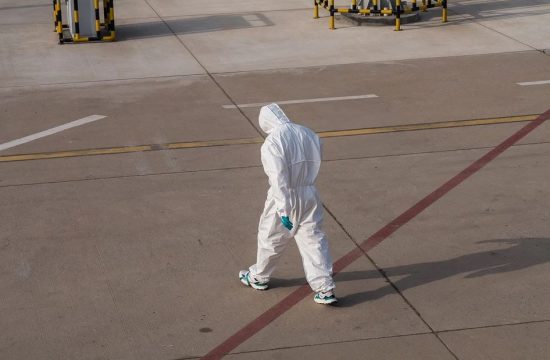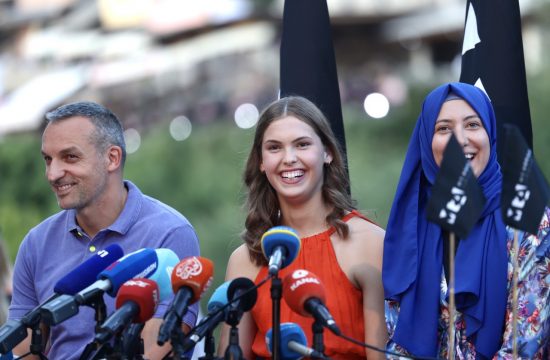Talks about reforming the Election Law in Bosnia are heading in the right direction, representatives of the international community said after a meeting between Bosnia’s political leaders and Venice Commission experts.
Changes in the Election Law need to be made urgently in order to avoid a crisis after the upcoming October election.
For two years Bosnia’s leaders were not able to agree on the reform and invited the Venice Commission to help them.
The Venice Commission is an advisory body of the Council of Europe, composed of independent experts in the field of constitutional law.
The officials would not reveal any details on what was discussed.
“This is part of a process of consultations which are ongoing. I think it is the right moment to consider realistic options for what could be done. I came from Brussels today to deliver a message which we have been repeating several times, we want to see these issues solved, to see Bosnia and Herzegovina on a European path, committed to reforms,” said European External Action Service (EEAS) Director for Western Europe, the Western Balkans and Turkey, Angelina Eichhorst.
“We think that today we saw progress, not only in finding solutions but also in taking over responsibility for the upcoming steps. It is a good moment, this Western Balkans region is a priority for the EU. I think a solution can be found,” she added.
Bosnia is divided into two entities – one dominated by Serbs, the other shared by Bosniaks and Croats. The country has a power-sharing system in which three nations are supposed to share it equally but in reality, in the entity shared by Bosniaks and Croats, Bosniaks can elect a Croat representative because of they are numerically superior.
The main Bosnian’ Croat party, the Croatian Democratic Party (HDZ) views such elected officials as illegitimate.
In December 2016, the Constitutional Court of Bosnia and Herzegovina (BiH) ruled partially in favour of a complaint lodged by former HDZ politician, Bozo Ljubic. He argued that the Croat influence in cantons with a majority Bosniak population was unfairly diminished in the selection of delegates. Therefore Croat candidates should be elected only out of majority Croat cantons, thereby ensuring that only Croats vote for Croat delegates.
In effect, Ljubic asked the Court to forbid the Croats from areas dominated by Bosniaks, such as Sarajevo, Tuzla and Bihac from becoming members of the House of Peoples of Federation of Bosnia and Herzegovina.
This is vehemently opposed by Bosniaks and the negotiations are stuck because nobody was willing to move an inch from their prior position.
“Whichever solution is found, it has to be a domestic one, and we continue to stay committed to help you with this,” US Ambassador in Bosnia, Maureen Cormack, said.
“Today we continued with a more concrete approach, we spoke of more concrete solutions, which will enable the implementation of the elections,” said the head of the EU mission to Bosnia, Lars-Gunnar Wigemark.
“That is the key issue at this moment. How to implement the ruling of the Constitutional Court on the appeal of Bozo Ljubic. It is important for there to not be any stalling, there is no time. This is something that is important in the context of rule of law and implementation of the election in accordance with international standards,” he said.
When asked if the solution will only concern the Presidency election, Wigemark would not go into detail, but he said the focus of the talks currently is the election of House of Peoples representatives, as “this is the core of the appeal in the Ljubic case”.
“At this moment, we are all focused toward trying to ensure the implementation of the election results,” he said.
US vice assistant Secretary of State, Matthew Palmer, said that Washington is still concerned about election reforms in Bosnia.
“We have been, and we remain committed to cooperation with domestic leaders so that we can find an agreed-upon way forward. I am certain that, at this moment, things are progressing toward the right direction. Honestly, these are highly complex issues, not only politically, but also technically,” he said.
“At this moment we do not want to go into details which things were discussed in terms of further steps,” he said.




